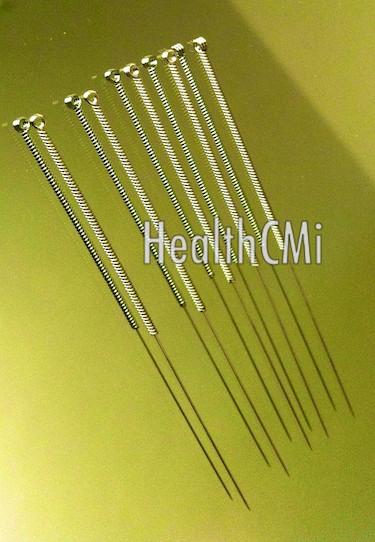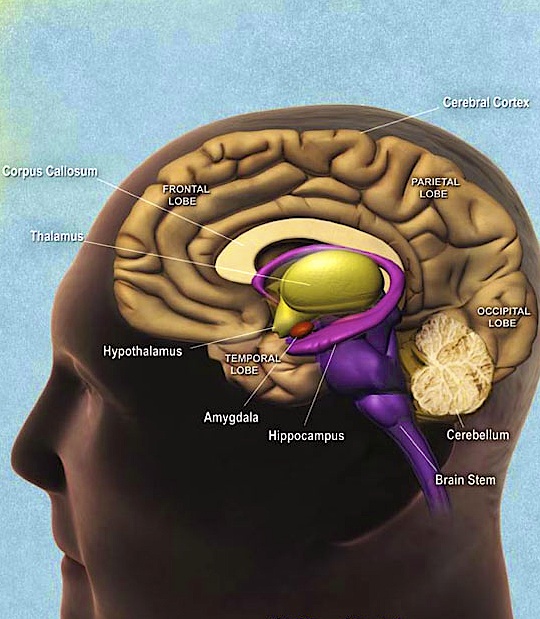New lab experiments reveal acupuncture has antidepressant effects.  An examination of brain cells following acupuncture treatments uncovered important mechanisms by which acupuncture exerts its antidepressant effects. Acupuncture caused the regulation of brain cell activity associated with therapeutic results.
An examination of brain cells following acupuncture treatments uncovered important mechanisms by which acupuncture exerts its antidepressant effects. Acupuncture caused the regulation of brain cell activity associated with therapeutic results.
The researchers discovered that acupuncture exhibits regulatory effects on special brain cells in the hippocampus called neural progenitor cells (NPs). These cells contribute to the maintenance of the brain and spinal cord. A major function of NPs is in the replacement of damaged or dead cells. Injured cells activate NPs to differentiate into the target tissue. NPs vary slightly from stem cells because they are more specific and tend to differentiate into a specific type of cell.
The researchers cite numerous studies showing “that acupuncture is an effective remedy for depression and it may be as effective as antidepressant drugs.” They also note that electro-acupuncture increases neurogenesis in the hippocampus as do SSRIs (serotonin reuptake inhibitors), a class of antidepressant medications. Neurogenesis is the process by which neurons are generated from neural stem and progenitor cells.
The focus of this new study was to map the precise cellular mechanisms responsible for the antidepressant effects of electro-acupuncture. Prior research shows that electro-acupuncture restores proliferation of NPs in the brain when impaired by depression. The focus of this study was a more precise measurement of specific biochemical actions.
The findings revealed that electro-acupuncture applied to acupuncture points DU20 (Baihui) and GB34 (Yanglingquan) on a stress induced rat model group regulated two major subclasses of NPs, quiescent neural progenitors (QNPs) and amplifying neural progenitors (ANPs). The researchers demonstrated that chronic unpredictable stress induced behaviors associated with depression and anxiety in the rat model group. The stress caused cell death of QNPs and “impaired the proliferation of both ANPs and QNPs” in the group. Electro-acupuncture “alleviated depressive-like and anxiety-like behaviors in the rat” group, restored proliferation of ANPs and limited cell death of QNPs. This caused a preservation of NPs in the hippocampus. 
The researchers note, “The present study revealed that chronic EA (electro-acupuncture) treatment exerted significant antidepressant effects in a rat model of depression. Further, the mechanisms underlying antidepressant effects of EA were associated with preserving the QNPs from apoptosis and ameliorating the impaired ANPs proliferation in hippocampus.” They note that the work conclusively demonstrates that electroacupuncture is “beneficial to the division of hippocampal NPs.” Further, the researchers note that these findings are consistent with other investigations demonstrating that electro-acupuncture “promotes neurogenesis in different brain regions….”
The researchers note that NPs are important in hippocampal neurogenesis and that chronic induced stress decreases proliferation of NPs and manifests in declined neurogenesis. This decrease in the birth of new brain neurons is associated with both anxiety and depression. Electro-acupuncture exhibited the opposite effects of chronic induced stress by upregulating ANPs. The researchers suggest that this is an “underlying mechanism of antidepressant-like effects of EA (electro-acupuncture).”
About the Acupuncture Points
The acupuncture points used in the study have many indications for use in Traditional Chinese Medicine (TCM). Acupuncture point DU20 is a sea of marrow point indicating its benefit to the brain. Traditionally, it functions to clear the senses, calm the spirit, stabilize the ascendant Yang and to extinguish Liver wind.
Many of these terms require translation into biomedical usage for the modern reader. For example, Liver wind is a term referring to disorders involving seizures, shaking, involuntary movements and other types of internal medicine imbalances. To the outside observer unfamiliar with TCM hermeneutics, the term seems unusual. However, it refers to the ability of DU20 to treat certain types of biomedical disorders including types of hypertension and its sequela. DU20 is also used for the treatment of headaches, tinnitus, vertigo, dizziness, nasal congestion, coma, shock, mental disorders, prolapsed rectum and prolapsed uterus.
Acupuncture point GB34 is traditionally used for many types of indications including lower limb and knee pain or paralysis. It commonly used for benefitting the tendons, muscles. sinew and bones. It is also used to benefit both the liver and gallbladder.
References:
Yang, Liu, Na Yue, Xiaocang Zhua, Qiuqin Hana, Bin Lia, Qiong Liu, Gencheng Wu, and Jin Yu. "Electroacupuncture promotes proliferation of amplifying neural progenitors and preserves quiescent neural progenitors from apoptosis to alleviate depressive-like and anxiety-like behaviours.”
Goldman, Steven A., and Fraser Sim. "Neural progenitor cells of the adult brain." In Novartis Found Symp, vol. 265, pp. 66-80. 2005.
Hsu, Yi-Chao, Don-Ching Lee, and Ing-Ming Chiu. "Neural stem cells, neural progenitors, and neurotrophic factors." Cell transplantation 16, no. 2 (2007): 133-150.


